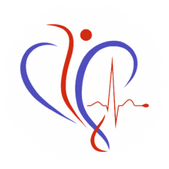Quick links to the information and resources you need.
General Heart and Vascular Care FAQs
Symptoms like chest pain, breathlessness, fatigue, fainting, or leg swelling warrant a medical consultation.
Yes, genetics can play a role, but lifestyle factors also significantly influence risk.
Adopting a healthy diet, regular exercise, quitting smoking, managing stress, and monitoring cholesterol and blood pressure are key steps.
Annual check-ups are recommended, especially if you have risk factors like diabetes, high blood pressure, or a family history of heart disease.
Tests include EKGs, echocardiograms, vascular ultrasounds, stress tests, and advanced imaging.
While we focus on diagnostics and planned procedures, we coordinate with local emergency services for acute cases.
While damage cannot always be undone, lifestyle changes, medications, and certain procedures can significantly improve quality of life.
Yes, procedures like angioplasty, stenting, and catheter-based treatments are less invasive alternatives.
We prioritize patient care with sedation options, compassionate staff, and state-of-the-art technology.
Referrals are not always necessary. Contact us to confirm based on your insurance and condition.
Heart Procedures FAQs
Angioplasty involves using a small balloon to open clogged arteries, often followed by placing a stent.
Most patients resume normal activities within 1-2 weeks, but strenuous activities should be avoided for 4-6 weeks.
CABG uses healthy blood vessels from your body to bypass blocked coronary arteries, improving blood flow.
Not always. Minimally invasive options are available for certain cases.
EPS diagnose arrhythmias by mapping the heart’s electrical activity using specialized catheters.
Yes, in many cases, you can go home the same day if no complications arise.
Echocardiograms, cardiac MRIs, CT scans, and nuclear imaging are common tools.
Preparations may include fasting, adjusting medications, and arranging transportation for after the procedure.
While risks vary by procedure, complications like bleeding, infection, or arrhythmias are rare at our center due to strict safety protocols.
By using cutting-edge technology, experienced specialists, and personalized treatment plans.
Vascular Health FAQs
It identifies blood clots, narrowed arteries, aneurysms, and venous insufficiencies.
Yes, it is a non-invasive and radiation-free diagnostic test.
Symptoms include leg pain, swelling, varicose veins, or a history of blood clots.
Typically 30-60 minutes, depending on the area examined.
Based on findings, follow-up care may include lifestyle changes, medication, or additional procedures.
Yes, many conditions can be treated with medication, compression therapy, or lifestyle adjustments.
Arterial issues involve restricted blood flow to tissues, while venous issues involve improper blood return to the heart.
Treatments include compression therapy, lifestyle changes, or minimally invasive procedures like vein ablation.
Yes, we diagnose and manage DVT with anticoagulants and, if necessary, advanced interventions.
Healthy blood vessels ensure efficient blood flow, reducing the strain on the heart and preventing complications.
Diagnostic Services FAQs
It diagnoses and treats heart conditions by accessing the heart through blood vessels.
Exercise stress tests, nuclear stress tests, and pharmacological stress tests are offered.
An echocardiogram focuses on heart structures and function, while vascular ultrasounds assess blood vessels.
It provides detailed visuals, enabling early and accurate diagnosis of heart conditions.
Most are non-invasive and painless. Some, like catheterization, may involve mild discomfort.
Wear comfortable clothing, avoid caffeine, and inform your doctor about medications.
For most tests, you can. However, for procedures involving sedation, arrange transportation.
It uses small amounts of radioactive material to create detailed images. The exposure is minimal and considered safe.
Results are typically available within a day, and your doctor will discuss them during your follow-up visit.
Most tests are covered, but coverage depends on your plan. Our team can assist with insurance verification.
